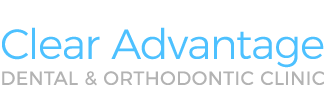Oral and maxillofacial surgery corrects diseases, injuries and defects in the head, neck, face and jaw, as well as the hard and soft tissues of the oral and maxillofacial region. It’s one of the nine specialties of dentistry recognized by the American Dental Association.
ORAL SURGEONS YOU CAN TRUST
Oral and maxillofacial surgeons are the only recognized dental specialists who are surgically trained in an American Dental Association-accredited hospital-based residency program. During this four-year period, they train with medical residents specializing in internal medicine, general surgery and anesthesiology. They also spend time in otolaryngology (ear, nose, and throat), plastic surgery, emergency medicine and other specialty areas. Their training almost exclusively focuses on the hard and soft tissue of the face, mouth and jaws. With their wide knowledge base, they’re uniquely qualified to diagnose and treat functional and aesthetic conditions in this part of the body.
CORRECTIVE JAW SURGERY
Corrective jaw (or orthognathic) surgery involves the repositioning of the upper jaw, lower jaw, and chin in order to correct minor and major skeletal and dental irregularities. This includes treating the misalignment of jaws and teeth, which affects chewing, speaking and breathing. If you have a receding chin or a protruding jaw or are experiencing excessive wear of teeth, difficulty chewing or sleep apnea, you may require corrective jaw surgery.
WISDOM TEETH
Wisdom teeth are the final set of teeth to develop. Occasionally, they find room on the gum line but typically, they fail to emerge and often become impacted. Impacted wisdom teeth need to be removed.
Partially or fully erupted teeth are difficult to clean and are susceptible to decay, infection and gum disease. The American Association of Oral and Maxillofacial Surgeons recommends the removal of wisdom teeth by the time a patient is a young adult. This prevents future problems and ensures optimal healing.
CLEFT PALATE
Cleft lip and cleft palate occur when portions of the mouth and nasal cavity don’t grow together properly during fetal development. This results in a gap in the lip or split in the roof of the mouth. If left untreated, a cleft palate will cause problems with feeding, speech and even hearing. Oral and maxillofacial surgeons can correct these problems through a series of treatments and surgical procedures.
FACIAL TRAUMA
Maxillofacial trauma includes any mouth, face or jaw injury. Serious facial injury occurs when bones are broken. Fractures often involve the lower jaw, upper jaw, palate, cheekbones, eye sockets, or combinations of these bones.
Because these injuries affect sight and the ability to breathe, speak and swallow, the expertise of the oral and maxillofacial surgeon is indispensable. Naturally, the best treatment is prevention. Use seat belts, protective mouthguards and appropriate masks and helmets when situations demand them.
TEMPOROMANDIBULAR JOINT SURGERY
The temporomandibular joint is located in front of the ear where the skull and lower jaw meet. It enables the lower jaw to move and function. If you experience jaw pain, earaches, headaches, difficulty opening or closing your mouth, clicking or grating sounds, you may have Temporomandibular Disorder (TMD). Treatment may range from conservative dental and medical care to complex surgery. If non-surgical treatment is unsuccessful, surgery may be required.
ORAL CANCER
Oral surgeons recommend an oral cancer self-exam each month. If you notice white or red patches, an abnormal lump, chronic sore throat or difficulty chewing or swallowing, contact your oral and maxillofacial surgeon. A biopsy may be in order to diagnose the problem.
IMPLANTS
Dental implants are long-term replacements for missing teeth. They’re composed of titanium metal that fuses with the jawbone through a process called osseointegration. Because dental implants fuse with the jawbone, bone loss is typically not an issue. Dental implants never slip and never decay.
OUTPATIENT ANESTHESIA
Oral and maxillofacial surgeons provide patients with safe, effective outpatient anesthesia. This includes local anesthesia, nitrous oxide, IV sedation and general anesthesia. During their residency, dental surgeons complete a rotation on the medical anesthesiology service, becoming competent in anesthesia evaluation.
